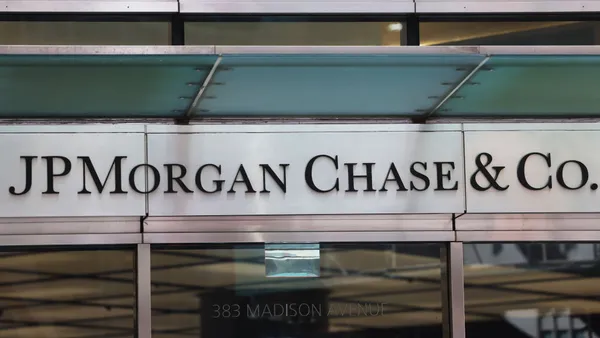The Federal Reserve Bank of Dallas chose Lorie Logan, a New York Fed executive vice president, to serve as its next leader, beginning Aug. 22, it said Wednesday.
“Lorie understands how our nation’s current economic challenges and the Fed’s actions impact all Americans, and will work toward a stronger economy for all,” Thomas Falk and Claudia Aguirre, the co-chairs of the committee charged with the presidential search said in a statement. “Her deep financial markets background and expertise in monetary policy and the financial system make her well qualified to contribute in a meaningful way to the monetary policy issues of the [Federal Open Market Committee].”
The announcement comes less than a week after 22 Democratic lawmakers urged the Dallas Fed in a letter to select a Latino to lead the central bank satellite. The district it covers — comprising Texas, southern New Mexico and northern Louisiana — serves a population that is 40% Latino, the lawmakers wrote. The Fed has never appointed a Latino to lead one of its 12 satellite banks.
By selecting Logan, the Dallas Fed “chose to perpetuate a legacy that has largely excluded Latino voices at all levels,” Sen. Bob Menendez, D-NJ, and Rep. Raul Ruiz, D-CA, said Wednesday, according to The Wall Street Journal. “We are deeply disappointed by today’s decision and will work to find solutions to address the Federal Reserve’s ongoing diversity problem.”
Logan could be seen, though, as a win for “continuity,” Aaron Klein, a senior fellow at the Brookings Institution, told Bloomberg. However, another analyst, Andrew Levin, a former Fed adviser and a professor at Dartmouth College, said Logan’s selection may be a strike against diversity of thought.
“People who have spent most of their career inside the Fed tend to be loyal to the institution and defensive of its decisions, rather than bringing a fresh and independent perspective to the Fed’s policy deliberations,” Levin told the wire service.
Logan has worked at the Fed since 1999 and has led market operations, monitoring and analysis at the New York Fed since 2012. She oversees a $9 trillion securities portfolio in her role as manager of the System Open Market Account for the FOMC — a position that has been a steppingstone for other Fed luminaries. Former New York Fed President William Dudley managed that portfolio before ascending to the central bank satellite’s top role in 2009.
Logan played a crucial role in the Fed's COVID-19 crisis response in 2020, managing several facilities to support market functioning, the Dallas Fed said. She also cut short her maternity leave in 2008 to work on the central bank’s actions in light of that year’s financial crisis, according to The New York Times.
“Throughout my career, I have been driven by a commitment to public service,” Logan said in a press release Wednesday. “I believe strongly in the Federal Reserve’s mission and in the critical role it plays in promoting a healthy economy that truly works for everyone.”
Logan will be one of 11 Fed regional presidents who hold rotating votes on the FOMC. Four of them vote each year, along with the New York Fed president and the board of governors. Logan will have a vote on the committee next year.
“Lorie is a trusted colleague and dedicated public servant whose remarkable skill and experience with complex financial markets has informed our decisions and helped implement monetary policy to support the U.S. economy,” Fed Chair Jerome Powell said in a statement Wednesday. “We will continue to benefit from her analytical rigor, keen insights and good judgment.”
Meredith Black — who has been serving as the Dallas Fed’s interim president since its previous leader, Robert Kaplan, left the bank in October — will retire Sept. 1 after a 39-year career, the Dallas Fed said.
Kaplan retired in the wake of revelations that he traded stocks in the run-up to the COVID-19 crisis. Within weeks of his departure, the Fed issued new rules barring its board governors and 12 regional presidents from buying individual stocks, holding investments in individual bonds or agency-backed securities, or entering into derivatives — or from making transactions “during periods of heightened financial market stress.”













